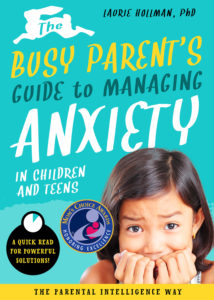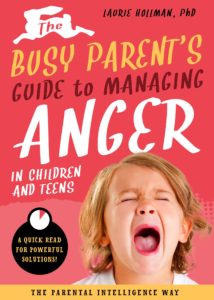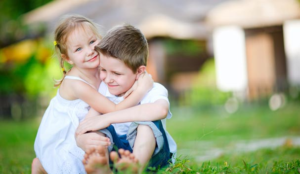Back to School: Transitioning out of Pandemic Life
What does Transitioning Mean?

OLYMPUS DIGITAL CAMERA
The key word in my title is “Transitioning” because there are still lots of questions in many geographic areas about resuming or continuing mask wearing with the new variant especially in states where political leaders are averse to vaccinations, distorting their use as if freedom to choose is being jeopardized.
How Kids Overhear All Parents are Saying
I must begin here even though we’re talking about kids’ socialization because we must remember they’ve been listening to their parents’ views for months and months and months.
Somehow there are parents who don’t question if stopping at a red light takes away their freedom from government control but the vaccination, a healthy way to transition into a less fearful life, takes something away from their control.
If this is the home environment some kids are entering school from now–They will be fearful, doubtful, confused about why their parents are at odds with other parents.
Furthermore, they have been seeing kids with and without masks age 12 plus, depending on if they are vaccinated, and kids under twelve remaining with masks.
This Isn’t a Real Post-Pandemic Time if We’re Realistic
This is hardly a Post-Pandemic time—it’s still in the wind no matter which way the breeze is flowing that day.
One more caveat, teachers are also people and parents with these diverse views. Unless a school principal or school board makes it VERY clear what the rules are with regard to masking and distancing, confusion will reign.
Kids Want Approval at All Ages from Parents and Teachers
Kids want approval from their parents and teachers. So how do they know what to do according to who’s rules?
They want desperately to be good kids who get along with others and belong but they’ll quickly feel in the wrong if different adults expect different rules.
It’s an Awkward Year
Given then that the awkward year is still awkward how can kids socialize with relative ease?
Every age group is developmentally in a different social place. So let’s begin there.
Two year olds barely understand sharing. Three year olds have NORMAL separation anxiety about leaving home for preschool because they are maybe — maybe finally catching on to the idea that if a parent is absent they will be seen again (at a specified time).
Kids starting kindergarten may be easy-going-run-out-and-meet-the-world-kids or more cautious, guarded, and quiet children.
All this is NORMAL in a normal world growing up. But it won’t feel okay unless their parents feel okay.
Anxiety in Parents Always Affects Kids

My point is that anxious parents breed anxious kids especially in anxiety-ridden environments.
So if we want calm kids, we must calm ourselves on a daily basis and get a hold on why we are not at ease if that is the case.
Do We Coach Kids About Topics to Talk About with Other Kids?
We won’t need to coach kids on topics to talk about if we set an easy-going pace. They’ll talk about their teachers, their summers, what they’re expected to do that’s chalked on the black board. They’ll compare lunches from their lunch boxes and trade cookies and snacks. This is everyday stuff they don’t have to be told about. IF WE ARE GIVING THEM A CALM SEND-OFF.
TEENS
All this need for approval from adults, acceptance by their peers, and a feeling of belonging goes for teens as well but exponentially.
Let them decide if they want a haircut before school and who should do it.
Let them decide the back to school clothes they are comfortable in.
Of course, set rules about make-up and minor dress codes that fit your geographic area but lay low, speak quietly, and never yell at a yelling kid!
If your teen is moody, angry, even says, “I hate you Mom” hold back your personal rejection and remember you’re the adult listening to a distressed child.

If they say words like “I hate you” and “I hate school” don’t tell them they don’t feel that. If they see back to school stuff already for sale in every pharmacy and grocery store and go “Yuck! Already?” Don’t fan the flames by minimizing or even qualifying what they say.
Seriously, it’s easier and more effective to join their reality and say, “Yeah. Why do stores have to push so hard?”
Your child will feel understood, not placated or lied to which is definitely the worst thing to do. They don’t care if the stores make money so don’t defend the stores–that’s hardly the point.
TEEN ACADEMICS
Back to teens who may not be prepared for the necessary review that some kids need and some kids don’t– depending on if and who has been teaching them the past year.
Some will surely be behind because they always were in the first place only now it’s worse and they know it for sure compared to others who may actually be ahead of the game because professional parents have been moving them along hopefully with fun ways of learning that may be less structured and more effective than what’s about to occur in school.
The result? A hodge-podge of kids at all different levels academically who all want to feel accepted and viewed as included in social groupings that will occur naturally.
Advice Giving to Teens?
Advice giving to teens?
You might slip in that being popular is not what’s important and doesn’t mean you’re a better kid or not.
The cliche, “just be yourself,” isn’t usually understood by teens who don’t have firm identities yet and don’t know what “be yourself” actually means.
So stick close to the obvious. Help them organize their backpack and lunch bag–Don’t say stuff like” You’re old enough to do this yourself” ’cause they’re not as organized as you may wish and need to watch you organize so they see how to do it.
How Do Kids Not Get Spoiled by all the Focus on Understanding What They are Going Through?

This is NOT the time to worry about SPOILING kids of all ages. Spoil away. Reassure away but mean it sincerely. Listen, listen, listen without interruption or downplaying angst.
“Chin up” is definitely a “no-no” when you’re worried. It just means to the kid, get out of my hair and buck up kiddo which no one wants to hear because it only feels like criticism.
Prepare Kids for Where You’ll be While They’re at School
Tell kids of all ages where you’ll be when while they’re in school. Tell them what to expect–like a big snack–when they get home.
Keep low about arguments about screen time and TV. I definitely don’t mean forget all your carefully created rules but when you’re asked, “Just 5 more minutes on youtube” don’t hit the ceiling. Laugh and say, “Okay four!”
Can You Really Lighten Your Kids’ Emotional Load?

It’s possible to lighten your kids’ emotional load by being as present as they need and giving them as much space as they need after school.
“How was your day?” works for some kids and others just feel annoyed because they haven’t figured out yet what they liked and didn’t like- or -they absolutely remember what bugged them and don’t want to be reminded.
Adults know how they need down time after work. Kids need down time after school. Let their minds “go offline” so to speak as they process their day silently, internally.
You know your own kid. If they love to talk a lot and loudly, great listen willingly. If they like to withdraw a bit after the commotion of the day, leave them alone.
Wait for maybe the second week before you set up clear routines for when homework begins and when play and hanging out begins or follows the homework.
Discuss WITH your child what really works best for them.
Expect some trial and error the first month about rule setting and then do actively establish a routine that provides the security and organization they need and want even when they don’t know yet what they want.
PARENTING ISN’T EASY BUT IT’S CRUCIAL

A basic rule of thumb about being a “good enough” parent is to take care of your own emotional load. Give a lot of thought to what you’ve been going through the past two years.
If you have at least one nonjudgmental friend who’s a good listener, discuss your moods and ups and downs to help you clarify your thinking and feel supported.
If you have a partner in parenting and you have similar beliefs, that’s great.
If not, now is definitely the time to begin ironing out how each of you have a say and are listened to silently by the other without interruption.
You don’t have to agree of course but find a way to keep your tone in check when you disagree and avoid criticism about differences.
Calm parents are more likely to have calm kids.
Anxious parents are more likely to have anxious kids.
Look hard in the mirror. Not to see if you’re great looking or your make up is cockeyed or if your gray hairs are showing, but just see yourself and remember she or he needs love and acceptance by that person in the mirror!
Take a deep breath. It’s okay to be okay and it’s okay not to be. Acceptance is all that’s required to settle yourself down.
This is corny. But if you smile at yourself in the mirror, you’ll surprisingly feel better maybe even laugh!
